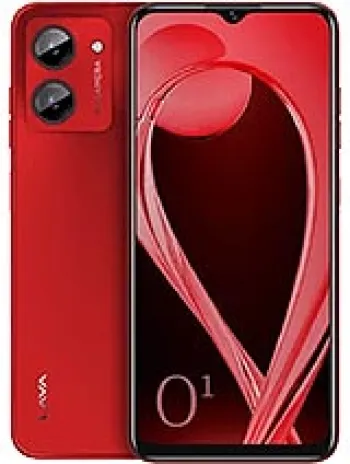
Network Technology
The Lava Iris 360 Music operates on GSM/HSPA network technology. Featuring 2G bands of GSM 900/1800 on both SIM 1 & SIM 2, this device ensures connectivity in regions with GSM network coverage. For faster data speeds, the phone supports 3G bands, specifically HSDPA 2100, offering maximum internet speed of 384 kbps. This was quite standard for entry-level smartphones released in the 2014 era, catering to basic internet browsing and communication needs.
Launch and Availability
Announced in August 2014, the Lava Iris 360 Music was released in the same month. Despite its discontinuation, the phone represented a budget-friendly choice for users at the time. The market for such devices primarily consisted of individuals seeking economical options or those requiring a secondary, less expensive phone.
Body and Design
The Lava Iris 360 Music comes in a compact form factor, although specific dimensions and weight are unspecified. The dual SIM capability allows users to manage two numbers simultaneously, a feature valued by those needing to separate work and personal communications or maintain connections in different network areas. The available color options included white, black, and grey, providing variety in aesthetic preference.
Display
Equipped with a 3.5-inch TFT display, the Lava Iris 360 Music offers a resolution of 320 x 480 pixels, translating to a 3:2 aspect ratio and a pixel density of approximately 165 ppi. While modest by today's standards, this display size and resolution were suitable for basic app usage, calling, and messaging tasks typical of smartphones from the same period.
Platform and Performance
The device runs on Android 4.2 Jelly Bean, which delivered a user-friendly interface, access to a wide range of apps, and satisfactory performance for its category. Powering the phone is a Dual-core 1.0 GHz processor, providing adequate processing capabilities for daily operations such as calls, messages, and basic app interactions. Its seamless functionality was important for budget devices with limited hardware resources.
Memory and Storage
With 4GB of internal storage and 512MB RAM, the Lava Iris 360 Music offers sufficient space for basic usage scenarios such as storing essential apps and files. The presence of a microSDHC slot allows users to expand storage further, ensuring flexibility in managing larger media files and additional applications. Such features are vital in low-end models to maximize utility without excessive cost.
Camera Capabilities
The main camera of the Lava Iris 360 Music features a 3.15 MP sensor accompanied by an LED flash, meeting basic photography needs such as capturing images during daylight or in well-lit environments. Video recording is supported, although quality is limited by the sensor's resolution. The selfie or front-facing camera, with a VGA sensor, provides fundamental self-portrait and video calling capabilities, which were a common expectation in smartphones during the release period.
Audio and Connectivity
Audio on the Lava Iris 360 Music includes a loudspeaker for hands-free communication and media playback, and a 3.5mm audio jack, a staple feature allowing the use of standard headphones and earphones. Communication options are not limited to cellular reception, with additional connectivity provided via Wi-Fi 802.11 b/g/n, Bluetooth 4.0 with A2DP, and GPS for location services. The phone includes various ports such as microUSB 2.0 for charging and data transfer, though it lacks NFC capabilities.
Radio and Other Features
Interestingly, the device also integrates an FM radio, a desirable feature for users who enjoy terrestrial radio broadcasts without using data services. Meanwhile, onboard sensors include an accelerometer and proximity sensor, helping manage orientation-dependent functions and contributing to usability in numerous apps.
Battery Performance
The Lava Iris 360 Music's battery life is managed by a removable Li-Ion 1400 mAh battery. With up to 250 hours of standby time and up to 6 hours of talk time, the battery performance supports fundamental usage throughout the day, providing essential power for communication tasks and basic app engagement.
Conclusion
Overall, the Lava Iris 360 Music stood out in its time as a practical and budget-conscious option for users seeking a simpler smartphone experience. While no longer available on the market, it served its purpose for those requiring mobile connectivity without the frills of advanced or costly features, reflecting the transitional nature of early 2010s smartphone trends.
Key Features of Lava Iris 360 Music
- Dual SIM capability
- 3.5-inch TFT display
- Android 4.2 (Jelly Bean) operating system
- Dual-core 1.0 GHz processor
- Expandable storage with microSDHC
- 3.15 MP main camera with LED flash
- VGA front-facing camera
- Wi-Fi 802.11 b/g/n connectivity
- Bluetooth 4.0 with A2DP
- GPS functionality
- FM radio for entertainment
- Removable Li-Ion 1400 mAh battery
- Available in White, Black, and Grey colors
- 3.5mm audio jack for headphones
Disadvantages of Lava Iris 360 Music
- No 4G LTE support, only GSM/HSPA available.
- Low screen resolution at 320 x 480 pixels (~165 ppi density).
- Outdated Android OS 4.2 (Jelly Bean).
- Limited internal storage of only 4GB and 512MB RAM.
- Basic camera features with a 3.15 MP main camera and VGA selfie camera.
- Limited battery life with a 1400 mAh removable battery.
- No NFC support for contactless payments.
- Discontinued model with no further software updates.

View Also
More Phones
All Rights Reserved +14266 Phones © Mobilawy 2025

























